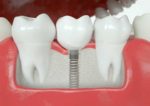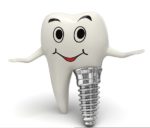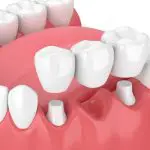Missing Back Teeth? Discover Your Options for a Perfect Smile
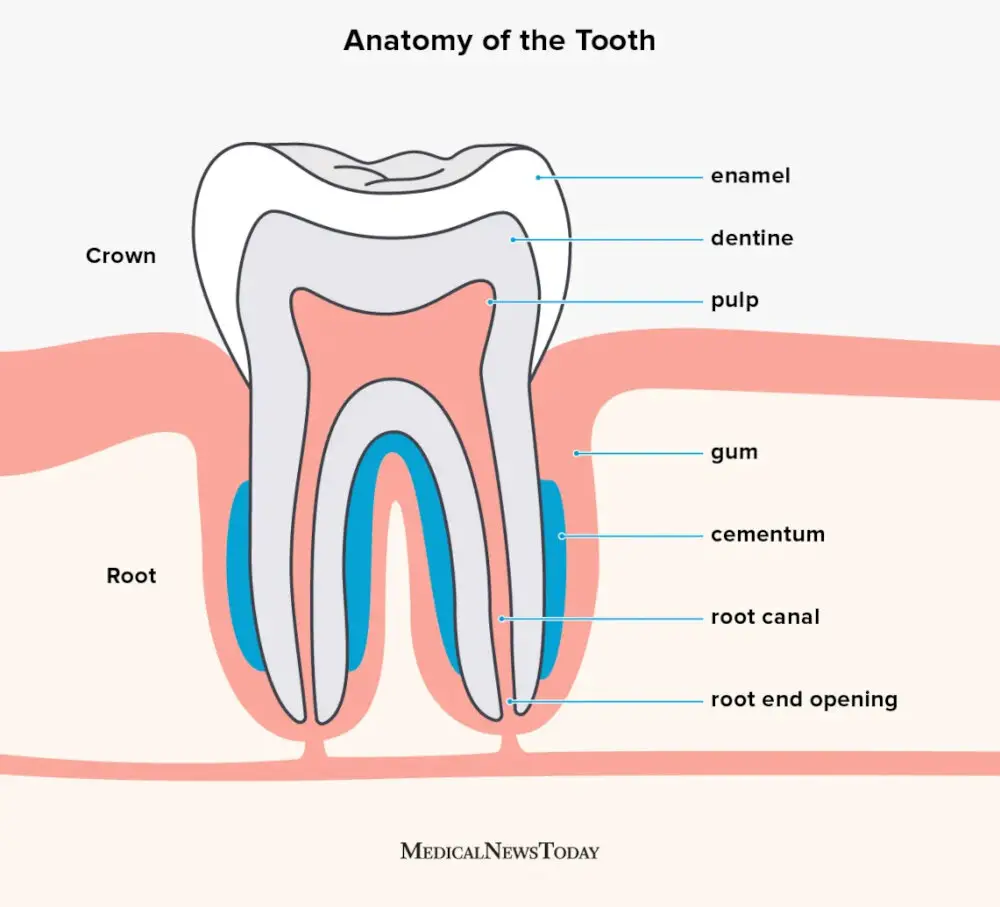
Missing back teeth can cause a significant amount of discomfort and inconvenience, as well as affect your overall oral health. Not only can the gaps make it difficult to chew and speak, but they can also lead to shifting of the remaining teeth and jawbone deterioration. With the help of modern dentistry, however, there are various options available to restore your smile and improve your quality of life. One of the most popular solutions for missing back teeth is dental implants. These are artificial tooth roots that are surgically placed into the jawbone and provide a sturdy foundation for a replacement tooth or a bridge. Unlike dentures, implants are fixed in place and do not require any special maintenance. Additionally, they look and feel like natural teeth, and can last a lifetime with proper care. However, not everyone is a candidate for dental implants, and other options may need to be considered.
Back teeth, also known as molars and premolars, play a crucial role in maintaining oral health and aesthetics. These teeth are responsible for grinding and chewing food, which is essential in the digestive process. Additionally, back teeth help maintain the structure of the jawbone and support the facial muscles, giving the face its natural shape. When back teeth are missing, the remaining teeth may shift and move, causing bite problems and even further tooth loss. This can also affect the overall appearance of the smile, leading to a sunken or sagging look. Therefore, restoring missing back teeth is essential to maintain oral health, improve function, and enhance the overall aesthetic of the smile.
Dental Implants
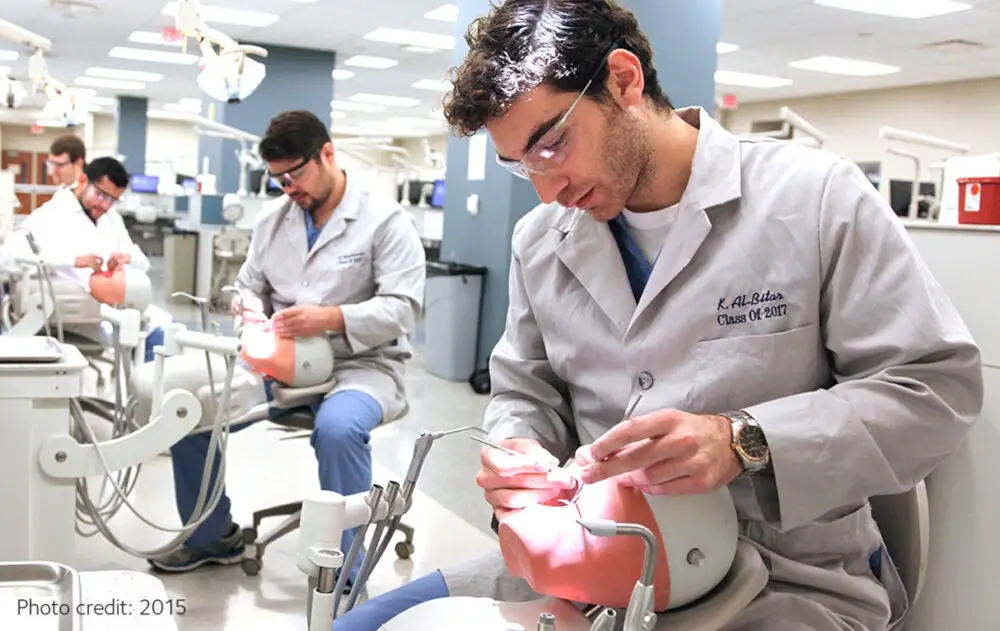
Dental implants are a popular and effective solution for missing back teeth. They are a long-lasting and natural-looking option that can improve both the function and appearance of your smile. The implant itself is a small titanium post that is surgically placed into the jawbone to act as the root of the missing tooth. Once the implant has fused with the jawbone, a crown or bridge is attached to the top of the implant to complete the restoration. Dental implants are durable, comfortable, and can last a lifetime with proper care. One of the benefits of dental implants is that they are a permanent solution for missing teeth. Unlike other options, such as dentures or partials, implants do not need to be removed for cleaning or maintenance. They also do not require any alteration to the surrounding teeth, as a bridge would. Dental implants are a versatile option, as they can be used to replace a single tooth or multiple missing teeth. They can also be used to support dentures, providing a more stable and secure fit. With dental implants, you can enjoy a beautiful, functional smile for years to come.
Dental implants are a permanent solution for those who have lost their back teeth and do not want to wear removable dentures. The procedure involves placing a small titanium post into the jawbone, which acts as the root for the replacement tooth. This post fuses with the bone, creating a strong and stable foundation for the new tooth. The replacement tooth is custom-made to match the color and shape of the surrounding teeth, providing a natural-looking smile. Dental implants also offer many advantages over traditional dentures, including improved comfort, better speech, and easier maintenance. With proper care and maintenance, dental implants can last a lifetime, making them an excellent long-term solution for missing back teeth.
When it comes to replacing missing back teeth, there are a variety of options available, each with its own procedure and cost. One popular option is dental implants, which involve surgically implanting a titanium post into the jawbone to serve as a replacement tooth root. While this procedure can be more expensive than other options, it offers a long-lasting and natural-looking solution. Another option is a fixed dental bridge, which involves attaching a prosthetic tooth to the adjacent teeth using dental crowns. This option can be less expensive than implants but may require more extensive preparation of the adjacent teeth. A removable partial denture is yet another option, which involves a removable prosthetic tooth that clasps onto existing teeth. This option can be the most affordable, but may be less comfortable than the other options. Ultimately, the best option for replacing missing back teeth will depend on the individual’s unique needs and budget.
The benefits of replacing missing back teeth are numerous. First and foremost, it improves your ability to chew and digest food properly. Losing back teeth can cause shifting of other teeth, which can lead to alignment issues and even jaw problems. Replacing missing teeth also prevents bone loss in the jaw, which can cause further dental problems. Additionally, it can improve the appearance of your smile and boost your self-confidence. However, there are also drawbacks to consider. The cost of dental implants, bridges, or dentures can be expensive, and the process may require multiple appointments over an extended period of time. There is also a risk of complications such as infection or implant failure. It’s important to weigh the benefits and drawbacks and consult with a dental professional to determine the best course of action for your specific needs.
Dental Bridges

Dental bridges are an effective solution for restoring missing teeth, and they are commonly used to replace back teeth that have been lost due to decay, injury, or gum disease. A dental bridge is composed of one or more artificial teeth, known as pontics, which are anchored in place by dental crowns on either side. The crowns are secured to the natural teeth or dental implants adjacent to the gap, providing a stable and functional replacement for the missing tooth. Dental bridges can be made from a variety of materials, including porcelain, ceramic, and metal, and they are custom-made to match the color and shape of your existing teeth for a natural-looking result. Dental bridges offer numerous benefits for patients with missing back teeth, including improved chewing ability, speech, and appearance. By filling in the gap left by a missing tooth, a dental bridge can help to prevent shifting of neighboring teeth, which can lead to bite problems, jaw pain, and further tooth loss. Additionally, dental bridges are a more affordable option than dental implants, and they require less time and fewer procedures to complete. With proper care and maintenance, a dental bridge can last for many years and provide a durable and functional solution for missing back teeth.
Dental bridges serve as a nonsurgical option for those who have missing back teeth and want to restore their ability to chew and speak properly. These bridges are custom-made dental prostheses that are cemented onto the remaining natural teeth or dental implants adjacent to the gap. They are made of porcelain, ceramic, or metal and can last for several years with proper oral hygiene. Dental bridges can improve the appearance of your smile and prevent the remaining teeth from shifting out of position. They are a great option for those who wish to avoid surgical procedures such as dental implants or dentures. With dental bridges, you can regain your confidence and enjoy your favorite foods once again.
When it comes to replacing missing back teeth, there are several options available. The procedure and cost of each option will vary depending on factors such as the patient’s dental health, the desired outcome, and the materials used. For those who want a permanent solution, dental implants may be the best option. This involves surgically placing a titanium post in the jawbone, which acts as a replacement tooth root. The cost of dental implants is typically higher than other options, but they offer a long-lasting, natural-looking solution. Another option is a dental bridge, which involves placing a false tooth between two existing teeth. The cost of a bridge is generally lower than implants, but they may need to be replaced over time. Dentures are also a popular choice for those missing back teeth. They can be made to match the patient’s natural teeth and are often the most affordable solution. Overall, the procedure and cost of replacing missing back teeth will depend on the individual’s needs and preferences.
Missing back teeth can cause a variety of problems, including difficulty chewing, jaw pain, and even changes in facial appearance. Fortunately, there are several options for replacing missing teeth, including dental implants, bridges, and dentures. One of the biggest benefits of dental implants is their durability and longevity. Unlike dentures, which may need to be replaced every few years, dental implants can last for decades or even a lifetime with proper care. Bridges are also a good option for replacing missing teeth, and they can be more affordable than implants. However, they require healthy adjacent teeth to be used as anchors. Dentures are another option, but they can be uncomfortable and require regular maintenance. It’s important to weigh the benefits and drawbacks of each option and consult with your dentist to determine the best solution for your individual needs.
Partial Dentures
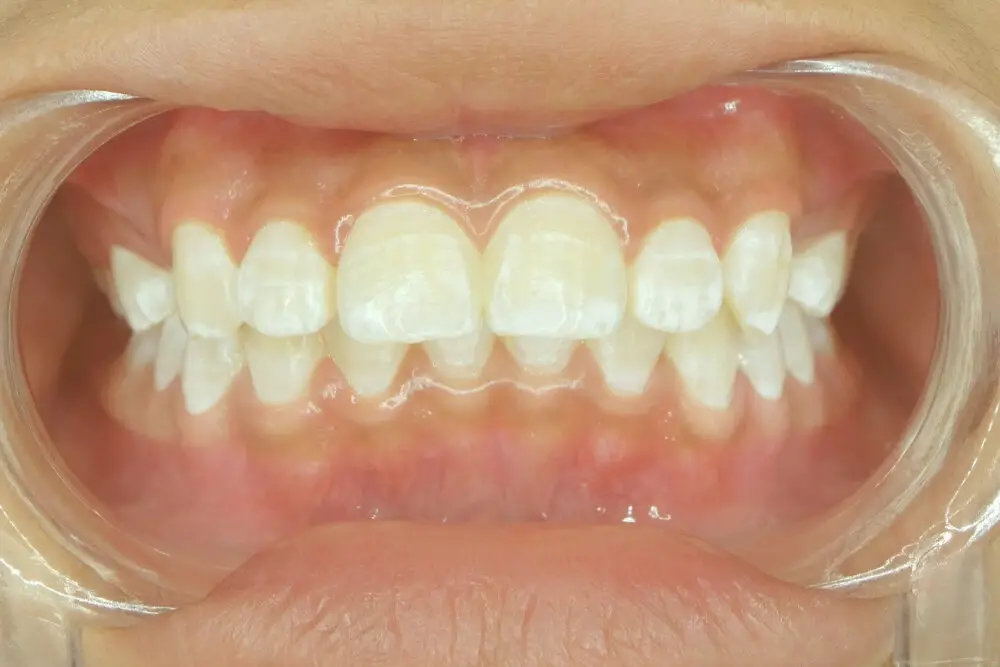
Partial dentures are dental devices that are used to replace one or more missing teeth in a patient’s mouth. They are designed to fit comfortably in the mouth and provide support for the remaining teeth, while also restoring the patient’s ability to chew and speak properly. Partial dentures are typically made from a combination of metals and plastic materials, and they can be custom-fitted to the patient’s mouth to ensure a comfortable and secure fit. One of the key benefits of partial dentures is that they can be a more affordable option for patients who are missing teeth but may not want or need a full set of dentures. They can also be a good choice for patients who are not candidates for other types of dental restorations, such as dental implants or bridges. Partial dentures are also relatively easy to care for and maintain, and they can be adjusted or replaced as needed over time to ensure a comfortable and effective fit. Overall, partial dentures can be an excellent option for patients who are looking to restore their smile and improve their overall oral health and function.
Partial dentures are a removable option for those individuals who have one or more missing teeth. These custom-made appliances are designed to fit comfortably in the mouth and attach to existing teeth using metal or acrylic clasps. Partial dentures can replace missing teeth in both the upper and lower jaws and are an excellent alternative to bridges or implants. They are made from a combination of materials such as acrylic resin, metal alloy, and porcelain, which helps provide the durability and strength needed for daily use. Partial dentures can also restore the ability to chew and speak correctly, improve facial appearance, and prevent further damage to remaining teeth. They require proper maintenance and regular checkups with a dentist to ensure they remain in good condition and provide long-lasting benefits.
When it comes to replacing missing back teeth, there are several options available. The most common procedures include dental implants, fixed bridges, and removable dentures. Dental implants are a popular choice as they are a permanent solution that looks and functions like natural teeth. The procedure involves surgically placing a small titanium post into the jawbone and attaching a crown on top. Fixed bridges are another option that involves attaching an artificial tooth to adjacent teeth with dental crowns. Removable dentures are the most affordable option but may not be as comfortable or natural-looking. The cost of each procedure varies depending on the complexity and materials used. It is important to consult with a dental professional to determine the best option for your specific needs and budget.
Missing back teeth can be a significant problem for many people, causing issues with chewing and speaking, as well as affecting the appearance of their smile. One of the main benefits of addressing missing back teeth is improved functionality, allowing individuals to eat and speak with ease. Additionally, replacing missing teeth can prevent further dental problems, such as tooth decay and gum disease, as well as improve the overall health of the mouth. However, some of the drawbacks of addressing missing back teeth include the cost of treatment, which can be expensive, as well as the time and effort involved in the process. It is important to carefully consider the options available and consult with a dental professional to determine the best course of action.
Orthodontic Treatment

Orthodontic treatment is a popular option for individuals with missing back teeth. This type of treatment involves the use of braces, aligners, or other dental appliances to correct misaligned teeth, bite problems, and other orthodontic issues. By moving the remaining teeth into the correct position, orthodontic treatment can help to restore the balance and function of the bite, while also improving the appearance of the smile. Orthodontic treatment can be an effective solution for individuals with missing back teeth, as it can help to compensate for the loss of these teeth by redistributing the forces of the bite. This can help to prevent further damage to the remaining teeth and reduce the risk of other dental problems, such as gum disease or tooth decay. Additionally, orthodontic treatment can help to improve the overall health and function of the mouth, which can have positive effects on overall health and well-being. With the latest advances in orthodontic technology, there are a wide range of treatment options available to suit the unique needs and preferences of each individual patient.
Orthodontic treatment can be a viable option for closing gaps between teeth. This treatment method involves the use of braces or clear aligners to gradually move the teeth into the desired position. The orthodontist will create a customized treatment plan based on the individual’s needs and goals. The duration of the treatment may vary depending on the severity of the gap, but typically lasts between 6 months to 2 years. In some cases, the orthodontist may also recommend other dental procedures such as bonding or veneers to achieve the desired results. Overall, orthodontic treatment can be an effective solution for individuals seeking to close gaps in their teeth and achieve a perfect smile.
When it comes to replacing missing back teeth, there are several procedures available with varying costs. One option is dental implants, which involve surgically placing a titanium post into the jawbone to act as a new tooth root. This can be a more expensive option, but it provides a long-lasting and durable solution that closely resembles a natural tooth. Another option is a fixed dental bridge, which uses adjacent teeth as anchors to support a prosthetic tooth. This is a less expensive option than implants, but it requires altering the adjacent teeth and may not last as long. A removable partial denture is also an option, which is a less expensive and non-invasive solution that uses a prosthetic tooth attached to a metal framework. The cost of each procedure can vary depending on factors such as the number of teeth being replaced, the materials used, and the location of the dental practice. It’s important to discuss all options and costs with your dentist to determine the best solution for your specific needs and budget.
The benefits of replacing missing back teeth are numerous. For one, it can improve the aesthetics of your smile and boost your self-confidence. It can also improve your oral health by preventing the surrounding teeth from shifting and causing misalignment. Additionally, it can enhance your ability to chew and speak properly, which can improve your overall quality of life. However, there are also drawbacks to consider. Replacing missing back teeth can be expensive, and some options may require surgery or multiple visits to the dentist. It’s important to weigh the benefits against the potential drawbacks and choose the option that best fits your needs and budget.
The article \Missing Back Teeth: Discover Your Options for a Perfect Smile\ highlights different options that people with missing back teeth can consider for a perfect smile. One option is dental implants, which are surgically placed into the jawbone and act as a natural tooth root. Another option is a dental bridge, which uses adjacent teeth to support the artificial tooth. Dentures are also a popular option for those who have missing teeth, and they come in full or partial sets. Orthodontic treatment can also be used to close gaps caused by missing teeth. In conclusion, there are various options available for those with missing back teeth to restore their smile and improve their oral health.
If you are missing back teeth, consulting with a dentist is highly recommended to determine the best option for your individual needs and goals. A dentist can perform a thorough examination of your mouth, including digital x-rays and impressions, to assess the condition of your teeth, gums, and jawbone. They can discuss the various options available to you, such as dental implants, bridges, or dentures, and help you decide which one is best suited for your specific situation. By seeking the advice of a dental professional, you can make an informed decision that will not only restore your smile but also improve your overall oral health and quality of life. Don’t let missing back teeth hold you back any longer – schedule a consultation with your dentist today.
Missing back teeth can have a significant impact on oral health and overall wellbeing. These teeth provide essential functions such as chewing and maintaining proper alignment of the jaw. When back teeth are missing, nearby teeth can shift and cause bite problems, leading to discomfort and potential damage to other teeth. Additionally, missing teeth can cause bone loss in the jaw, which can affect the facial structure and contribute to a sunken appearance. Addressing missing back teeth is crucial to maintaining optimal oral health and overall wellbeing, and there are several options available, including dental implants, bridges, and dentures. It’s important to consult with a dental professional to determine the best option for each individual’s unique needs and circumstances.
Conclusion

In conclusion, missing back teeth can be a significant issue that affects both your oral health and your self-confidence. But, with the plethora of options available today, there is no need to suffer in silence. By consulting with a qualified dentist, you can explore a range of treatments such as dental implants, bridges, and dentures, that can help restore your smile, improve your bite and speech, and boost your overall well-being. With the right treatment plan, you can achieve a perfect smile that not only looks great but also functions optimally. So don’t let missing back teeth hold you back any longer, take the first step towards a happier and healthier you today!
